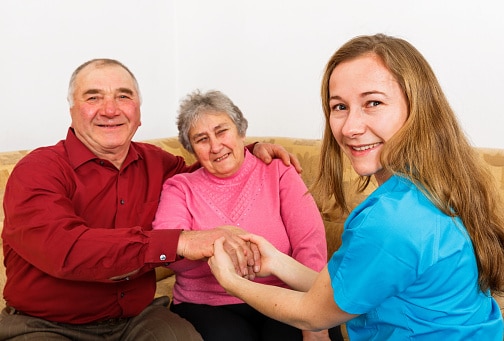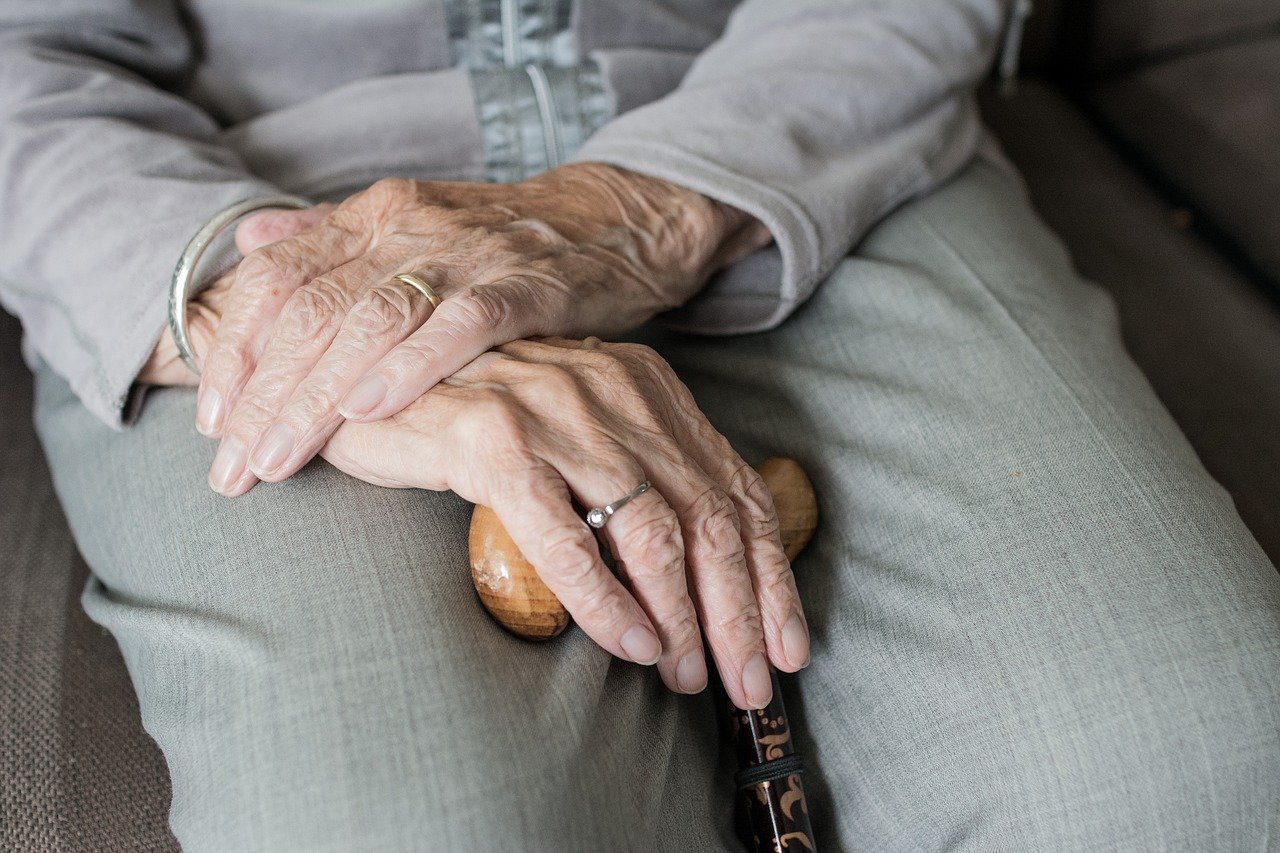
Dealing with Diarrhea in the Elderly
Diarrhea in the elderly population is a common occurrence and can be caused by various factors. Some of these include medications, changes in diet, infection, or underlying medical conditions such as diabetes or inflammatory bowel disease. The symptoms of diarrhea may vary in severity and duration but can range from mild to very severe. In this article, we’ll examine some of the common causes, signs and symptoms, complications, and treatments for diarrhea in older adults.
Causes of diarrhea in older adults
There are many potential causes of diarrhea in elderly individuals. These include:
- Medication: Many medications can cause or contribute to diarrhea in older adults. Antibiotics, laxatives, and antacids are among the most common culprits. Older adults may also be more susceptible to side effects from some drugs that can lead to diarrhea.
- Infection: Diarrhea caused by infection is particularly common in older people as their immune systems may not be as strong as those of younger people. Infections such as Salmonella, Rotavirus, Campylobacter, and Clostridium difficile can all cause diarrhea in the elderly population.
- Dietary Changes: Changes in diet may also trigger episodes of diarrhea in the elderly population. This could include a change in eating habits, such as adding more fiber to the diet, or simply being unable to properly digest certain foods.
- Underlying Medical Conditions: Underlying medical conditions may also play a role in causing diarrhea in older adults. Diabetes and inflammatory bowel disease are two common culprits that can lead to symptoms of diarrhea.
These are just some of the most common causes of diarrhea in older adults, but there are many other possible causes as well. It is important for any senior citizens who experience signs and symptoms of diarrhea to speak with their doctor so that they can receive proper treatment and advice.
Complications of diarrhea in the elderly
The elderly population is particularly vulnerable to the complications of diarrhea, including dehydration, malnutrition, electrolyte imbalances, kidney failure, or infection. Diarrhea can also put them at risk for hospitalization if not treated promptly and effectively.
Furthermore, long-term and frequent bouts of diarrhea can lead to serious health conditions such as sepsis and Clostridium difficile (C. diff).
It is important that individuals with underlying medical conditions, who might be more prone to developing these types of complications, seek medical attention right away if they experience chronic or severe bouts of diarrhea.
Signs and symptoms of diarrhea
Common signs and symptoms include watery stools, abdominal pain, cramping, bloating, and nausea.
How to treat diarrhea in the elderly
There are plenty of home remedy treatments for diarrhea. These include:
- Drinking plenty of water and electrolyte-rich fluids to prevent dehydration.
- Eating a BRATT diet of bland foods like Bananas, Rice, Applesauce, Toast, and Tea to help ease symptoms.
- Eat several small meals throughout the day instead of large, heavy meals.
- Avoid dairy products as they can often worsen diarrhea in the elderly population.
- Avoid caffeine and alcohol, which can irritate the digestive system further
- Take probiotic supplements to replenish healthy gut bacteria and help with digestion.
- Get plenty of rest and relaxation, as stress can worsen diarrhea symptoms.
- Use natural remedies such as ginger or chamomile tea which may have anti-inflammatory properties that can help reduce abdominal cramping and discomfort associated with diarrhea.
- Take over-the-counter antidiarrheal medications if recommended by a physician.
These home remedies can be effective in helping manage the symptoms associated with diarrhea in the elderly population, however, it is always recommended to consult with a physician before beginning any treatment regime as some of these treatments may interact with medications an individual might already be taking.
It is also important to periodically check for signs of dehydration when dealing with diarrhea in the elderly, as it can be a serious complication. If dehydration is suspected, medical care should be sought immediately.
A doctor should also be contacted if diarrhea persists for over 24 hours in an older adult.
Treatment will depend on the underlying cause but typically involves fluid replacement to help prevent dehydration as well as dietary changes and medications to help manage symptoms.
When to seek medical care for diarrhea
It is essential for elderly individuals who experience episodes of diarrhea to seek prompt medical attention if they experience any symptoms of diarrhea lasting more than 24 hours, or if signs of dehydration are noticed.
Signs of dehydration include:
- Dark yellow urine
- Dry mouth and throat
- Fatigue or weakness
- Dizziness or lightheadedness
- Decreased urination
- Headache
- Confusion
- Muscle cramps
- Sunken eyes or cheeks
- Rapid heart rate
- Low blood pressure
- Irritability or mood changes
- Skin that’s cool to the touch
- Lethargy or excessive sleepiness
It is also important to seek medical care if diarrhea is accompanied by other symptoms such as fever, bloody stools, abdominal pain, vomiting, or if the individual is feeling unusually weak or lethargic. These could be signs of a more serious underlying illness and should be discussed with a healthcare provider immediately.
Seeking prompt medical attention can help diagnose and treat any underlying causes of diarrhea in elderly adults and prevent further complications from developing. It can also help manage symptoms more effectively so seniors can get back to their normal activities as soon as possible.
Treating the source of the problem as soon as possible can help reduce risks associated with dehydration and long-term complications from chronic diarrhea. In many cases, simple dietary and lifestyle modifications can help to prevent the recurrence of episodes.
Prevention of diarrhea
In order to prevent diarrhea in the elderly, it is important to start with a healthy diet that includes plenty of fruits, vegetables, grains, and other nutrient-dense foods. Regular exercise can also help to promote digestive health.
Additionally, regular visits to your healthcare provider for recommended screenings can help detect any underlying medical conditions or medication side effects that may be contributing to the development of diarrhea.
By taking these preventative measures and seeking medical attention at the first sign of any abnormal bowel activity, elderly individuals can reduce their risk of developing chronic diarrhea or other potential complications associated with the condition. A healthy diet and regular exercise combined with regular screenings can go a long way toward maintaining optimal digestive health throughout your later years. Remember: when it comes to digestive health, prevention is key!
Summary
In conclusion, diarrhea in the elderly should not be taken lightly and in many cases, it requires prompt medical attention. With the right preventative measures and treatment plan, elderly individuals can significantly reduce their risk of developing chronic diarrhea and its associated complications. Taking care of yourself now can ensure that you stay healthy for many years to come.
If you have any further questions or concerns about diarrhea in the elderly, speak with your healthcare provider today. They will be able to provide more information on prevention strategies as well as discuss any additional tests that may need to be done in order to determine the underlying cause of your symptoms. With the right treatment plan and proactive lifestyle changes, you can have a positive outlook on your digestive health for years to come!
Related Articles

Elder Law Attorneys: A Comprehensive Guide
If you are someone who is taking care of a senior or has an elderly loved one, you should consider working with an elder law attorney. Though you may not expect it, individuals begin to face new and more complex legal concerns as they get older. Actions that may have seemed trivial when they were […]

When Is It Time for Assisted Living?
Wondering if it is time for assisted living for your loved one is a common question for caregivers. As a caregiver, you might have been considering the question for months or possibly even years. Your loved one might have declined to continue the discussion as the thought of moving out of their family home and […]

All About Adult Day Care: Community and Costs
Adult day care is a fairly new concept for caregivers. The basic idea is to provide a secure place where seniors can enjoy social activities during the day and be provided nursing care as needed. It’s a hybrid model of eldercare that prioritizes community. At the same time, seniors get help with common custodial tasks […]

Respite Care: An Overview
Caregiving can be overwhelming at times. That’s why taking a break is essential for recharging your battery. Respite care, also called short break care, is a way for caregivers to get temporary care for their loved ones so they can take some time to rest. Getting this “me time” of respite care can renew the […]

An Overview of Senior Rehabilitation Centers
Recovering from injury or illness in your golden years may take time and support. That’s where senior rehabilitation centers become essential. If you need a temporary stay to recover from injury or illness, senior rehabilitation centers can be the solution to get expert care and daily support. In this article, we’ll give you an overview […]

A Caregiver’s Guide to ADLs and IADLs
This article has been medically reviewed by Dr. Martin Duggan in 2021. This content is not intended to be a substitute for professional medical advice, diagnosis, or treatment. Always seek the advice of your physician or another qualified health provider with any questions you may have regarding a medical condition. As a family caregiver, your […]